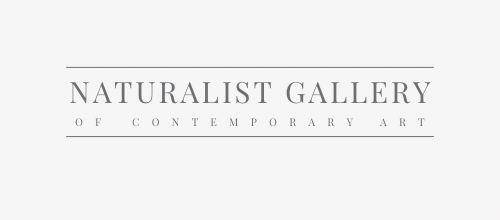Should Artists Pay Fees to Exhibit?
Paying fees to exhibit artwork can be frustrating, but reputable exhibitions offer exposure and sales. Artists should consider factors like reputation, location, visitors, promotion, expertise, timing, agreement transparency, and personal goals.

Paying fees to exhibit artwork has been a common practice for artists, but it often leads to frustration and financial strain. While some galleries focus more on collecting fees than promoting artists, reputable international exhibitions offer wider exposure and potential sales. For example, Naturalist Gallery provides comprehensive artist representation, including solo exhibitions, print releases, juried exhibitions, online residency, marketing support, and pricing control to its Artists must consider various factors before deciding whether to pay fees for exhibition opportunities. In this article, we will explore the advantages and disadvantages of paying fees to exhibit, helping artists make informed decisions about their art career.
Artists must weigh the advantages and disadvantages of paying fees based on their circumstances, goals, and value placed on exposure and sales.
Factors to Consider:
- Reputation: Assess the exhibition's reputation and recognition within the art community. Determine if it is well-known and respected among potential buyers and collectors.
- Location: Consider whether the exhibition will be held in a prominent and familiar location, attracting a larger audience.
- Visitors: Evaluate the type and number of visitors who typically attend the exhibition. Look for events that attract art enthusiasts and potential buyers.
- Promotion: Examine the quality and professionalism of the exhibition's promotional efforts. Consider the reach of their marketing and advertising campaigns and the budget allocated for promotion.
- Organizer Expertise: Research the organizer's background, connections, and expertise in the art industry. Ensure they have a solid track record and can provide valuable support to exhibiting artists.
- Timing: Consider whether the exhibition coincides with an active season or art-related events in the city or country, increasing the chances of attracting a larger audience.
- Clear Agreement: Verify that the organizer provides a well-documented, legally binding agreement that outlines all terms and conditions, ensuring transparency and protection for artists.
- Application Fees: Distinguish between fees collected for submitting applications and fees required for exhibiting artwork. Beware of unprofessional practices regarding application fees.
- Cooperation: Assess the organizer's level of cooperation and responsiveness to artists' inquiries and concerns.
- Goals: Determine if the organizer's primary focus is self-promotion or providing valuable opportunities and support to exhibiting artists.
- Personal Pride: Reflect on whether exhibiting in the specific event or gallery aligns with your artistic goals and if it will enhance your reputation and professional standing.
- Gallery Exhibitions: Consider the level of promotion and marketing support provided by galleries, ensuring it is clearly stated in the agreement.
The Role of Art in the Industry: Art plays a significant role in the global industry, driving substantial financial transactions. Artists with exceptional talent need professional visibility and promotion to reach the right audience. While some artists may build their own collector base without relying on galleries or art organizers, taking risks and investing in selected exhibitions can expand opportunities for recognition and success.
Naturalist Gallery offers comprehensive artist representation that can be highly advantageous for artists. The gallery showcases a curated selection of international contemporary art, providing artists with the opportunity for wider exposure and potential sales. With benefits such as permanent archival, solo exhibitions, limited edition print releases, and participation in juried exhibitions, Naturalist Gallery offers a platform for artists to showcase their work and gain recognition.
Artists face the choice of paying fees to exhibit their artwork, and it is crucial to evaluate the advantages and disadvantages. Reputable international exhibitions can offer wider exposure and networking opportunities, but competition is fierce. Gallery exhibitions may provide more control but require careful consideration of the promotion and support provided. Ultimately, artists must make decisions based on their individual circumstances, goals, and the value they place on exposure, promotion, and potential sales.
Related Articles:
You may also find the following articles helpful:
Why Gallery Representation is Good for Artists: 9 Key Benefits

